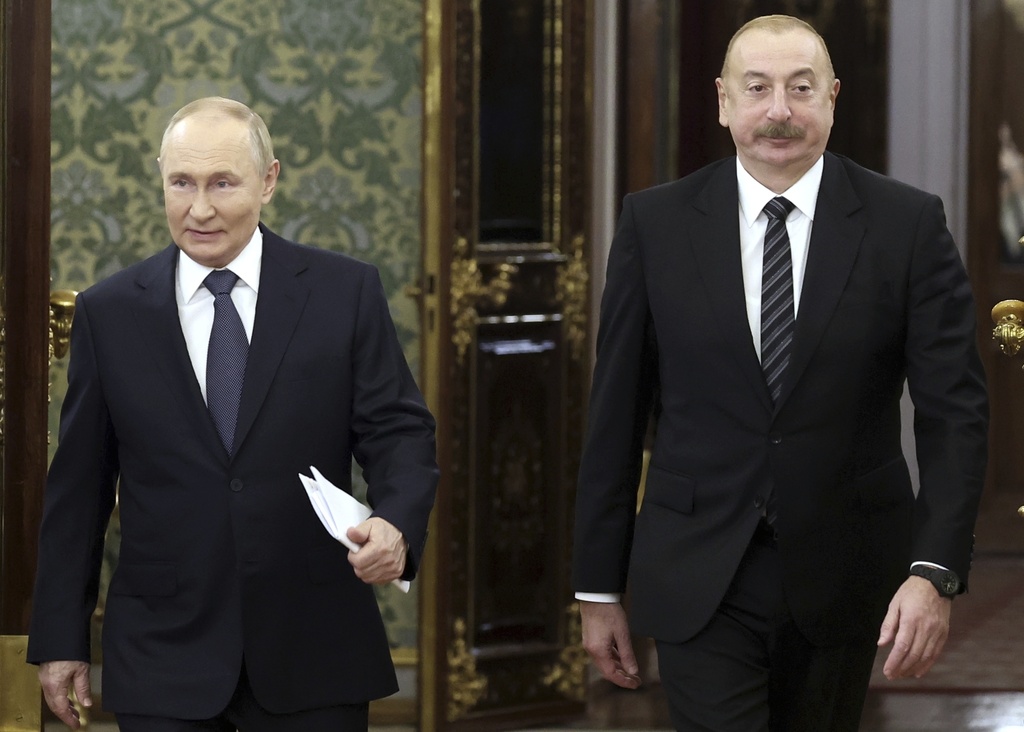
Escalating Tensions Between Russia and Azerbaijan: A Look at the Recent Crisis
A series of recent events, including the deaths of ethnic Azerbaijanis in Russia, the crash of an Azerbaijan Airlines plane, and growing Azerbaijani-Turkish ties, have significantly strained the relationship between Russia and Azerbaijan, a once-close partner in the South Caucasus.
A Deteriorating Relationship: From Economic Ties to Heightened Tensions
The relationship between Russia and Azerbaijan, once marked by strong economic and cultural ties, has significantly deteriorated in recent months. These ties flourished after 1993 when Heydar Aliyev, father of the current president Ilham Aliyev, assumed the presidency. Both Heydar Aliyev and Vladimir Putin share a history of suppressing political opposition and restricting independent media. Azerbaijan relied on Russia for oil and natural gas imports while exporting its own energy resources to the West. Russia served as a key market for Azerbaijani agricultural products and a crucial transit route for Russian trade with the Middle East. Moreover, Azerbaijani businesses held significant assets in various sectors of the Russian economy, and a large Azerbaijani diaspora resided in Russia.
However, this seemingly stable relationship has been significantly disrupted by several recent incidents. The deaths of two ethnic Azerbaijani brothers, Huseyn and Ziyaddin Safarov, during a police raid in Yekaterinburg, Russia, sparked outrage in Azerbaijan. The Azerbaijani government attributed the deaths to police brutality, alleging beatings and physical abuse. This incident, along with the crash of an Azerbaijan Airlines plane, which Baku blamed on Russian air defenses, significantly escalated tensions. The plane crash, in which 38 of 67 people on board died, further fueled anti-Russian sentiment. President Aliyev’s refusal to attend Russia’s Victory Day parade and his subsequent call with Ukrainian President Volodymyr Zelenskyy further exacerbated the strained relationship.
The growing partnership between Azerbaijan and Turkey, coupled with waning Russian influence in the South Caucasus, has also contributed to the escalating tensions. Azerbaijan’s assertive stance following its victory in the Karabakh conflict, where Russia’s limited intervention angered Armenia, further strained relations with Moscow.
Recent Incidents and the Breakdown of Trust
The deaths of the Safarov brothers in Yekaterinburg triggered a strong response from Azerbaijan. The government canceled scheduled Russian official visits and cultural events. This was followed by a raid on the Baku offices of Sputnik Azerbaijan, a Kremlin-funded media outlet, resulting in the arrest of several employees. The arrests of other Russian professionals in Baku, accused of drug trafficking and cybercrime, further inflamed tensions. Images of the detainees, showing signs of physical abuse, fueled outrage in Russia, with accusations of hostage-taking. Russia responded by briefly detaining the leader of the Azerbaijani community in Yekaterinburg.
Azerbaijan’s condemnation of the deaths and its subsequent actions were met with strong counter-responses from Russia. The Russian Foreign Ministry summoned Azerbaijan’s ambassador, protesting what it termed “unfriendly actions.” Azerbaijan, in turn, summoned the Russian ambassador, demanding an investigation, punishment for those responsible, and compensation for the victims. The escalating rhetoric and reciprocal actions indicate a significant breakdown in trust and a hardening of positions on both sides.
Geopolitical Implications and Future Outlook
The escalating tensions between Russia and Azerbaijan have significant geopolitical implications for the South Caucasus region. The once-close relationship between the two countries is now characterized by mutual distrust and antagonism. The situation is further complicated by the ongoing conflict in Ukraine and the shifting geopolitical alignments in the region. The growing partnership between Azerbaijan and Turkey, along with Azerbaijan’s assertive foreign policy, poses a challenge to Russia’s regional influence. The future of relations between these two countries remains uncertain, with the potential for further escalation, but also the possibility of de-escalation through diplomatic efforts. The interplay of economic interests, historical grievances, and geopolitical ambitions will shape the trajectory of relations in the coming months and years.
Key Takeaways
- Recent events, including deaths of ethnic Azerbaijanis in Russia and a plane crash, have severely strained relations between Russia and Azerbaijan.
- Growing Azerbaijani-Turkish ties and waning Russian influence in the South Caucasus have further exacerbated tensions.
- Mutual accusations and retaliatory actions indicate a significant breakdown in trust and a hardening of positions on both sides.
- The escalating tensions have significant geopolitical implications for the South Caucasus region.
- The future of relations between Russia and Azerbaijan remains uncertain, with potential for further escalation or de-escalation depending on diplomatic efforts.
